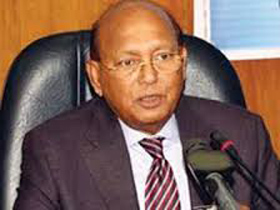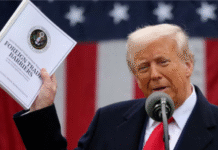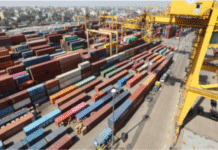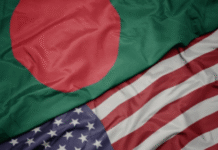India should come forward to address trade barriers, he says
Commerce Minister Tofail Ahmed on Wednesday said Bangladesh’s ‘friendly neighbour’ India should come forward to address non-tariff barriers as Bangladesh is also opening up its market through regional connectivity for a wider and smooth trade flow.
“We’re well-connected with India. When we talk about economic corridor consisting of Bangladesh China, India and Myanmar (BCIM), it means we would like to open up our economy,” he said urging India to reciprocate.
The Commerce Minister was addressing a report launching ceremony here as the chief guest.
Non-tariff measures (NTMs) are of particular concern to exporters and importers in developing countries as they are a major impediment to international trade and can prevent market access.
Saarc-Trade Promotion Network Partners in Bangladesh, Metropolitan Chamber of Commerce and Industry (MCCI), Export Promotion Bureau (EPB) and Small and Medium Enterprises Foundation (SMEF) jointly arranged the event to launch the report, titled ‘NTMs in South Asia: assessment and Analysis’ at the Chamber building.
President of the Federation of Bangladesh Chambers of Commerce and Industry (FBCCI) Kazi Akram Uddin Ahmed and leading business leaders and senior government officials also spoke on the occasion with MCCI president Rokia Afzal Rahman in the chair.
Executive Director of South Asian Network on Economic Modeling (Sanem) Dr Selim Raihan made a presentation on the report.
Speaking at the function, Tofail said there had been many agreements with India to remove trade barriers during his tenure in the past as Commerce Minister but those were not fully implemented.
Quoting Indian officials at that time, he said, “It’s not we who run the country but patriotic bureaucrats run the country. We take decisions but bureaucrats implement those.”
The Commerce Minister said there is no doubt that trade barriers still exist in the South Asia and the current trade flow is nothing significant compared to potential.
Turning to Japan issue, Tofail said Japanese top companies are very much interested to invest in Bangladesh and the government would facilitate them for smooth investment.
The business leaders at the discussion said the non-tariff barriers affect their business and sometimes such barriers appear as a bigger barrier than tariff barrier.
Exporting companies seeking access to foreign markets and companies importing products need to comply with a wide range of requirements, including technical regulations, product standards and customs procedures.
The business sector, particularly in developing countries, often lacks the information, capabilities and facilities needed. Meeting the complex requirements and demonstrating compliance with NTMs can also come at a considerable cost.
Source: UNB










